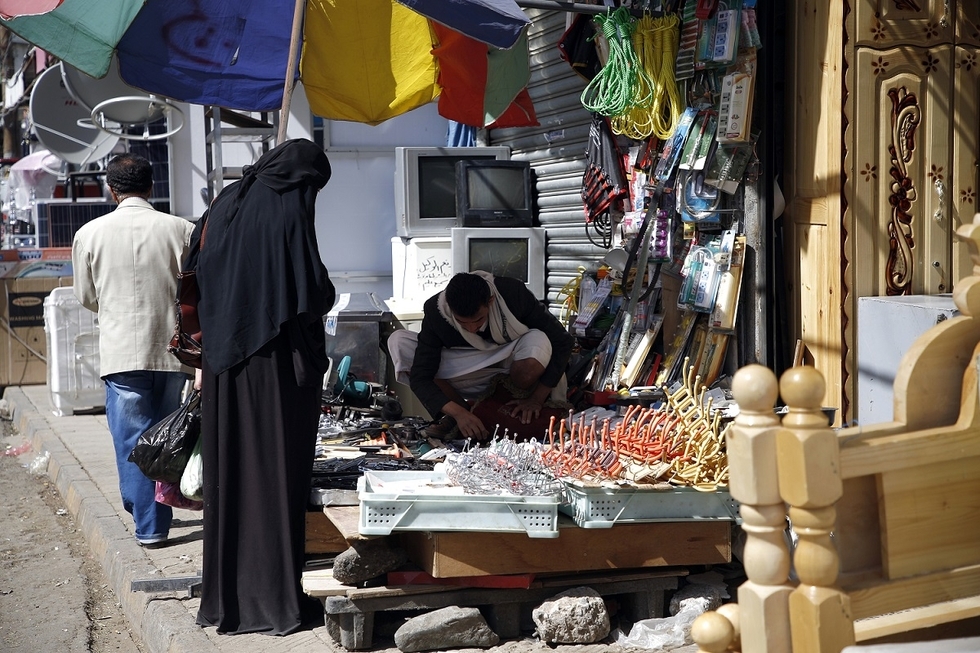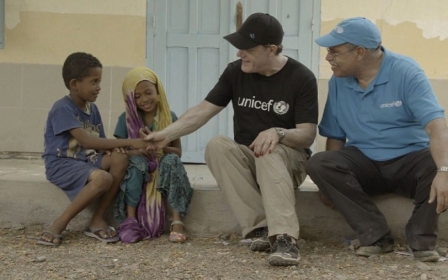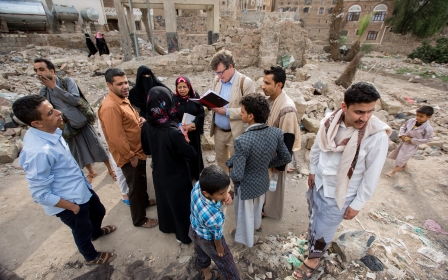Yemen war death toll reaches 10,000: UN

A UN envoy held talks with Yemen's President Abd Rabbuh Hadi on Monday as the United Nations said the death toll from the war had reached 10,000.
The envoy, Ismail Ould Cheikh Ahmed, was in Aden for the meeting that focused on a return to a ceasefire and to political talks to end the nearly two-year war.
The talks came as fighting in the southern Shabwa area on Monday reportedly killed 34 people and wounded 16 others during clashes between Houthi fighters and pro-government forces.
Eddie Izzard: I was born in Yemen - its civil war shames us all
The United Nations said the civilian death toll in fighting since a Saudi-led force intervened in March 2015 had reached 10,000, up from the previous figure of 7,000.
The higher toll "underscores the need to resolve the situation in Yemen without any further delay", said UN spokesman Farhan Haq in New York. "There is a huge humanitarian cost."
Jamie McGoldrick, humanitarian coordinator of the UN Development Programme in Yemen, said the latest death toll is based on lists of victims gathered by hospitals and the true figure could be higher.
McGoldrick said up to 10 million Yemenis were also in urgent need of humanitarian assistance.
A UNICEF report in December indicated that hunger among children has reached an "all-time high", with almost half a million suffering from severe acute malnutrition - a 200 percent rise since 2014.
In a report published in December, UNICEF said at least one child dies every 10 minutes because of malnutrition, diarrhoea and respiratory-tract infections.
Ould Cheikh Ahmed is hoping to revive peace prospects in Yemen after Hadi rejected his proposed roadmap. He is due to report to the UN Security Council later this month.
The roadmap provides for a new unity government in Yemen and a rebel withdrawal from the capital and other cities.
"A peace agreement, including a well-articulated security plan and the formation of an inclusive government, is the only way to end the war that has fuelled the development of terrorism in Yemen and the region," Ould Cheikh Ahmed said in a statement.
"I asked the president to act swiftly and engage constructively with the UN's proposal for the sake of the country’s future."
"The current political stalemate is causing death and destruction every day. The only way to stop this is through the renewal of the cessation of hostilities followed by consultations to develop a comprehensive agreement."
Under the proposal, Hadi's powers would be dramatically diminished in favour of a new vice president who would oversee the formation of the interim government that will lead a transition to elections.
Houthi rebels and forces loyal to former president Ali Abdullah Saleh, who control the capital, Sanaa, have faced a military campaign by the Saudi-led coalition to restore President Hadi as the recognised government.
The campaign has been unable to dislodge the Houthis from the capital and their strongholds in the north of the country and has been criticised for causing widespread civilian casualties and destruction of infrastructure.
The Saudi-led coalition has also imposed a naval blockade on rebel-controlled ports, leading to acute shortages of essential goods.
Middle East Eye propose une couverture et une analyse indépendantes et incomparables du Moyen-Orient, de l’Afrique du Nord et d’autres régions du monde. Pour en savoir plus sur la reprise de ce contenu et les frais qui s’appliquent, veuillez remplir ce formulaire [en anglais]. Pour en savoir plus sur MEE, cliquez ici [en anglais].




